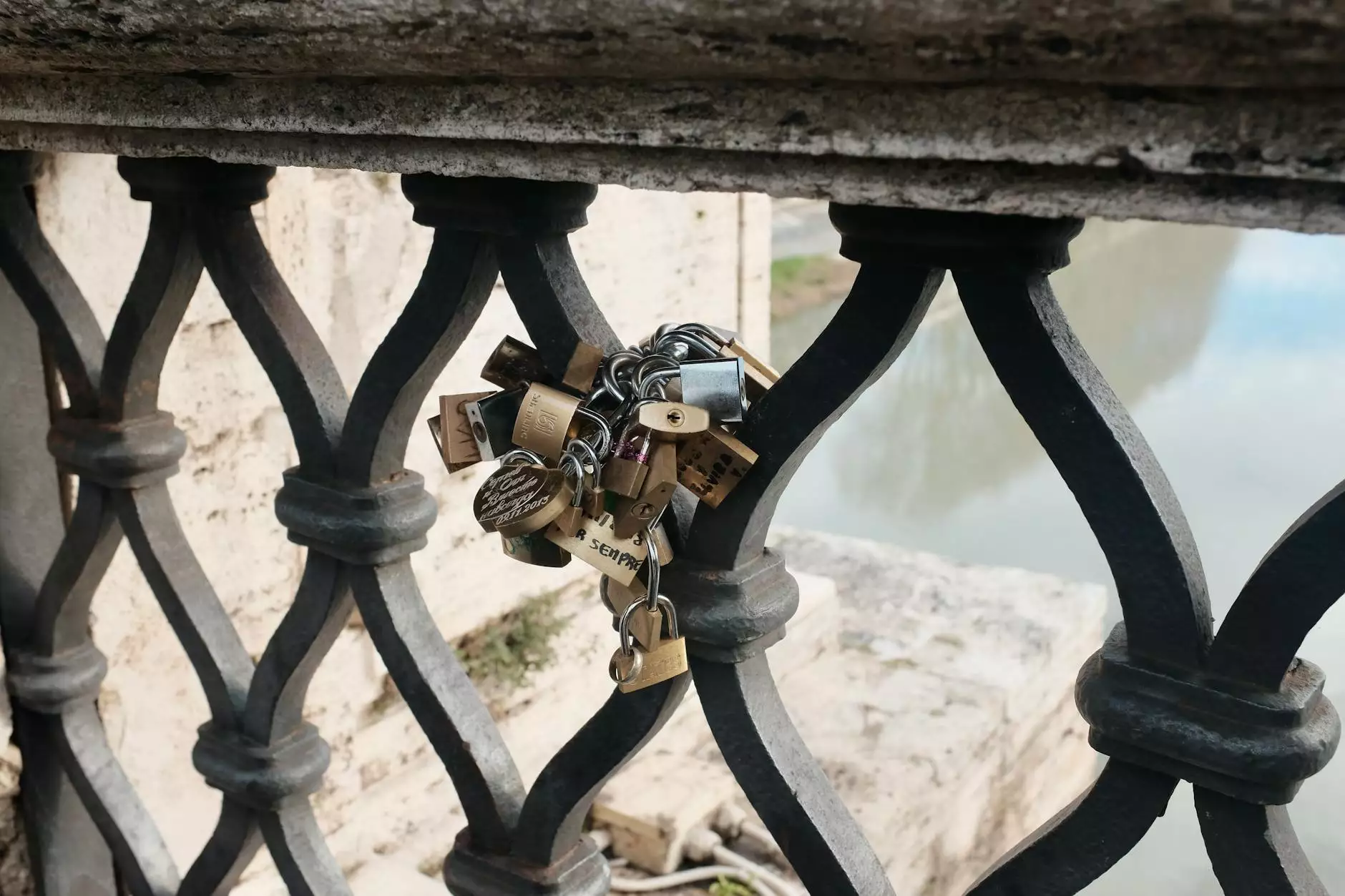The Comprehensive Guide to Door Lock Mechanisms for Enhanced Security

Security is a fundamental aspect of modern life, especially when it comes to protecting our homes and businesses. In this endeavor, understanding the door lock mechanism becomes essential. This article will delve into the various aspects of door lock mechanisms, exploring their types, features, benefits, and how they contribute to overall security.
Understanding Door Lock Mechanisms
At its core, a door lock mechanism is designed to control access to a premises. It provides a physical barrier that deters unauthorized entry while allowing those with proper authorization to gain access. The mechanism itself is the inner workings of a lock that determine how it functions.
There are several types of door lock mechanisms, each offering unique features and varying levels of security. Whether you are a homeowner seeking to enhance your property’s security or a business owner looking to protect valuable assets, understanding these mechanisms is crucial.
Types of Door Lock Mechanisms
1. Deadbolt Locks
Deadbolt locks are one of the most common and secure types of door locks. They are operated by a key or a thumb turn and offer a high level of resistance against forced entry.
- Single Cylinder Deadbolt: Operated by a key from the outside and a thumb turn from the inside.
- Double Cylinder Deadbolt: Requires a key for both the outside and inside, ideal for doors with glass panels.
- Lockable Thumbturn Deadbolt: Combines features of single and double cylinders with added security.
2. Knob Locks
Knob locks are often used in residential settings, typically for interior doors. While they can provide a certain level of security, they are generally less secure than deadbolt locks.
3. Lever Handle Locks
Lever handle locks are user-friendly and often found in commercial spaces. They are easy to operate and can be paired with deadbolts for increased security.
4. Smart Locks
Smart locks represent the latest innovation in door lock technology. Enabling keyless access through smartphones or keypads, they often come with features like remote locking and unlocking, automatic locking, and even the ability to grant temporary access codes. This blend of convenience and security makes smart locks a popular choice for modern homes and businesses.
Features of Door Lock Mechanisms
When selecting a lock for your door, it is essential to consider the features that enhance its functionality and security:
- Security Ratings: Look for locks with high ratings from organizations like ANSI (American National Standards Institute) or UL (Underwriters Laboratories).
- Material: Locks made from solid brass or stainless steel offer greater durability and resistance to tampering.
- Key Control: Some locks allow for restricted key duplication, providing an additional layer of security.
- Resistive Features: Features like anti-drill, anti-pick, and anti-bump are vital for enhancing security.
The Importance of Choosing the Right Door Lock Mechanism
The door lock mechanism you choose can significantly impact the security of your property. When evaluating different locks, consider the following:
Identifying Your Security Needs
Assess what you need to protect. Is it a high-traffic area that requires frequent access, or is it a secluded entrance that needs heightened security? Understanding your unique situation will help guide your choice of door lock.
Assessing Location
The location of your door is crucial as well. Exterior doors typically require more robust locking mechanisms than interior doors. Consider factors such as exposure to the elements and potential vulnerabilities unique to the area.
Budget Considerations
Quality locks can range widely in price. While it's tempting to cut costs, investing in a reliable lock can save you from expensive damage and loss in the long run.
Installation and Maintenance
Proper installation is critical to the functioning of your door lock mechanism. It might be beneficial to hire a professional locksmith to ensure that your locks are installed correctly. Regular maintenance, such as lubrication and checking for wear and tear, will also prolong the life of your locking mechanisms.
Enhancing Security with Additional Measures
While choosing a secure door lock mechanism is essential, it should be a part of a broader security strategy. Here are some additional measures you might consider:
- Use of Door Reinforcements: Installing door jammers or security bars can add another layer of security.
- Lighting: Ensure your property is well-lit to deter intruders.
- Surveillance Cameras: Visible cameras can act as a deterrent and provide evidence in case of a break-in.
Conclusion
Understanding door lock mechanisms is vital for anyone looking to protect their home or business. By educating yourself on the types of locks, their features, and how to choose the right one, you can significantly enhance your security measures. Moreover, integrating locks within a comprehensive security plan—complete with additional measures—will provide peace of mind.
For a wide selection of quality door lock mechanisms and expert advice, visit kaukaban.com. Protect what matters most with the right choices in security!



